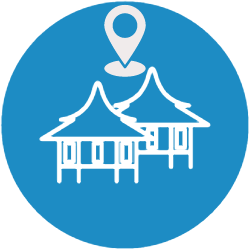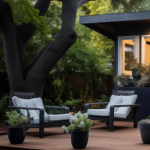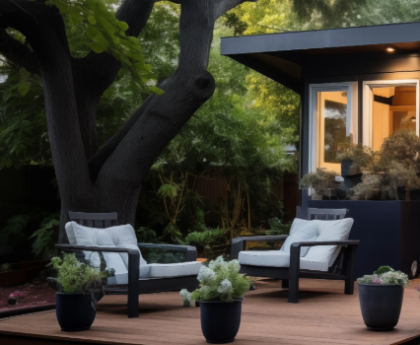
If you’ve ever wanted to have a renter, a family member or visitors live in your backyard, you’re not alone.
Since Boise’s zoning code rewrite went into effect in December, the City of Boise saw a surge of interest in building accessory dwelling units, sometimes known as mother-in-law cottages. The city’s new code loosened rules on the structures in the new code in order to encourage more residents to build them as an affordable housing solution in the booming city.
The code change increased the maximum size of an ADU allowed from 700 square feet to 900 square feet, removed the requirement that an owner must live in the main house and eliminated requirements for an extra parking space.
Since 2024 began, the city received 38 applications for ADUs, with 25 approved so far. The city saw 48 ADU applications in all of 2023. Crystal Rain, a city planner, told the Boise City Council Tuesday evening that if the application rate continues, the city could see roughly 100 applications by the end of the year.
Most applications for new units are for the North End, with the Central Bench being the second most popular ADU destination.
In comparison, the city received 82 applications for ADUs in 2021 and 71 in 2022. The city loosened rules on ADUs previously under former Mayor Dave Bieter’s administration in 2019. Those earlier changes increased the size allowed from 600 square feet to 700 square feet, allowed a second bedroom and cut down on parking regulations.
Those earlier rounds of changes led to a boom of 94 ADUs approved in nearly a year and a half, compared to only 33 in the year prior, as BoiseDev previously reported.
Pilot project fails to take off
As popular as ADUs are proving to be, a city effort to try and coax more property owners into building them for affordable housing hasn’t taken off.
In 2021, the city launched a pilot project of two different concepts proposed by community members to address the city’s struggle with affordable housing. One program will be testing whether or not the city should legalize tiny homes on wheels or RVs as temporary housing, which is currently underway. The second idea would have traded a small financial boost from the city and assistance in jumping through the hoops of building an ADU with an agreement that rents would be capped for low-income, long-term tenants for a decade.
But, this didn’t quite catch on the way the city thought.
“At least a dozen households meaningfully considered participating, but for various reasons, they backed out,” LEAP Housing’s Chief of Staff Brian Woodward said, about his nonprofit’s contract managing the pilot. “Mostly because the cost of construction materials increased quite a bit as well as interest rates. We had some folks who are mission-minded and who had the means to do it, but they didn’t want to restrict themselves to 80% rent for ten years.”
Boise’s Director of Innovation and Performance said although the pilot didn’t work, it is still going to be analyzed by the Idaho Policy Institute and brought back to the city with lessons learned. The city’s pilot for moveable tiny homes on wheels is still ongoing after a lengthy delay.
“We’re disappointed the ADU pilot didn’t work, but again we collected a lot of good information that will inform future efforts,” Patterson said.



